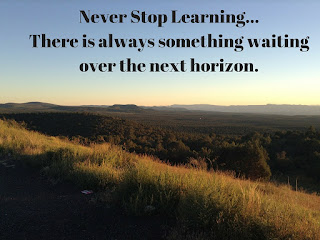 There seems to be a misconception among those outside Children's Ministry as to what a Family Service really entails. Most Pastors that I have talked to assume that it is a service that caters to the children and therefore will not be as thought provoking or challenging to adults. This could not be more wrong.
There seems to be a misconception among those outside Children's Ministry as to what a Family Service really entails. Most Pastors that I have talked to assume that it is a service that caters to the children and therefore will not be as thought provoking or challenging to adults. This could not be more wrong.However, for most Pastors, a family service means the following:
The children are in the main sanctuary.
There will be one part of the service that is especially for them (sermon in a sack, object lesson)
A few or all of the children might sing a song or be a part of a choir song
There may be a packet that they work on that goes along with the sermon
Some kids might even help with the ushering duties.
That is what most Family Sunday's look like across the country (including mine) and those are good. Kids need to be a part of a regular morning worship service and be witness to what the Lord is doing among the larger body. It is important that children are in such services and I am in no way devaluing them. BUT, that is not a FAMILY Service. It is a Sunday Morning where we are aware that children are in the room so we have made slight changes to the regular order to help them be a part of the ADULT Service, but it is not a true FAMILY service.
A true Family Service ministers to the entire family equally. From children to grandparents, all are included and all are involved. And not just a little here and there, but literally engaged and involved throughout the entire service. It is no wonder that there is confusion because many people have never been in such a service. And I will be the first to tell you that they are truckloads of work to put together. No exaggeration, I usually want at least 6 months to plan a Family Service and get all the pieces and people in place for it. (It could be put together faster, if your church does them fairly often, but if it is "new" it's going to take much longer to put together.) However, when you do a true FAMILY service...it is amazing. Everyone is a part. Everyone is engaged and God can move in mighty ways. So what does it look like?
Many people will be involved on the platform.
The Music led will connect across the generations.
The Bible won't just be read, but it will come alive in some fashion.
Multiple techniques will be used to reach all types of learners (touch, visual, auditory, etc)
The Lesson/Sermon will be taught and reinforced throughout the service in various ways
Multimedia tools will be utilized.
Those in the congregation will be encouraged (but not forced) to participate
No part of the service is specifically set for any age group, but all age groups are engaged throughout the entire time.
The Word of God is taught in unexpected and memorable ways.
Do you see the difference? A true family service is for the entire FAMILY of God. Not a "kid's service", not "adult church", not even "teen oriented". It is for everyone equally. And if you are willing to put in the work to put one together for your church...they can be absolutely amazing. If you'd like more information about Family Services or would like to see an outline of one I have led in the past, let me know. I'd be glad to share.
Until next week!


